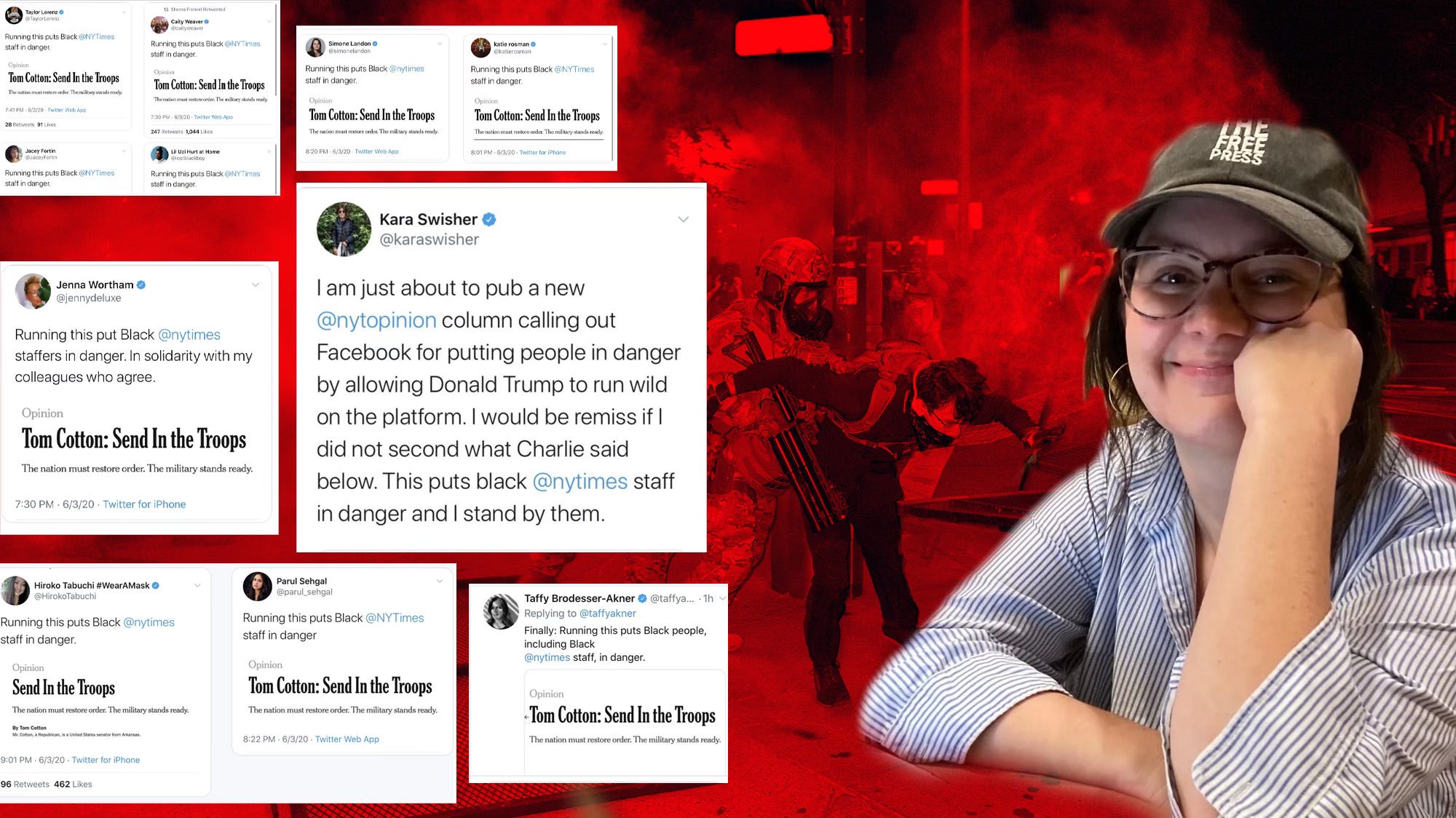Podcast Episode Details
Back to Podcast Episodes
Bari Weiss and The Substack Revolution
Everything changed for me in early June of 2020, when the Tom Cotton essay appeared in the New York Times and all hell broke loose on Twitter.
I was scrolling the app to my detriment, as I always do, and all of a sudden, it was like the night Donald Trump won the election. Big trouble in blue-check city.
The New York Times published an op-ed that called for the military to be brought in if the riots could not be controlled. Even typing that sentence, calling them “riots” instead of protests, was a thought crime and could not be said out loud, so you can only imagine how horrifying it was for the reality deniers on Team Fragility to hear Cotton’s thesis statement, “This week, rioters have plunged many American cities into anarchy, recalling the widespread violence of the 1960s.”
It was dangerous because it was the truth. Like this scene in The Insider, where Jeffrey Wigand’s story has to be buried because it might disrupt a corporate merger at CBS News, except this time it might upset the Times staffers and the Twitter hive mind.
The point was, Cotton was not only telling the truth — a truth all of us could see with our own eyes — but he was reflecting the majority opinion of Americans. That’s why Bari Weiss and James Bennett asked Tom Cotton in the first place to represent the other half of America that the New York Times and everything under the Left’s control abandoned.
I sat in my apartment, gobsmacked that all of this was playing out. Here we’d spent months on lockdown, making our own hand sanitizers and masks. My daughter was sent home from her senior year of college to have her graduation on my balcony. And all of a sudden, none of that mattered because “systemic racism” mattered more. Yeah, that’s what the experts told us.
All of these years later, after everything we’ve seen and learned about that time in our history, we know the Democrats needed it to be bad — bad enough to pressure Americans into voting out a one-term president with a strong economy. It’s just that I didn’t know that then. All I knew was that no one would talk about it. If you did, your career would be over.
The Tom Cotton op-ed would change the course of my life forever because that was the moment I could suddenly see that I wasn’t getting the truth. I was getting the negotiated truth, the narrative, what they wanted me to know. I began to wonder, what else wasn’t true?
It was also the moment everything changed for Bari Weiss, who’d been hired to shake up the media bias at the New York Times.
Everyone I knew on Twitter swarmed her, attacked her, and attacked the Times the day the op-ed was published. They were dragging out the history of James Bennett. They were accusing the Times of “putting Black bodies in danger.” The staff felt unsafe, and before long, Bari Weiss became the problem.
They kept the piece up but affixed an embarrassing disclaimer at the top, which is still there:
After that, Bari Weiss didn’t just resign. She took a flamethrower to the Times in a fiery resignation letter that was the shot heard round the world, or at least the internet. She wrote:
But the lessons that ought to have followed the election—lessons about the importance of understanding other Americans, the necessity of resisting tribalism, and the centrality of the free exchange of ideas to a democratic society—have not been learned. Instead, a new consensus has emerged in the press, but perhaps especially at this paper: that truth isn’t a process of collective discovery, but an orthodoxy already known to an enlightened few whose job is to inform everyone else.
Twitter is not on the masthead of The New York Times. But Twitter has become its ultimate editor. As t
Published on 3 days, 5 hours ago